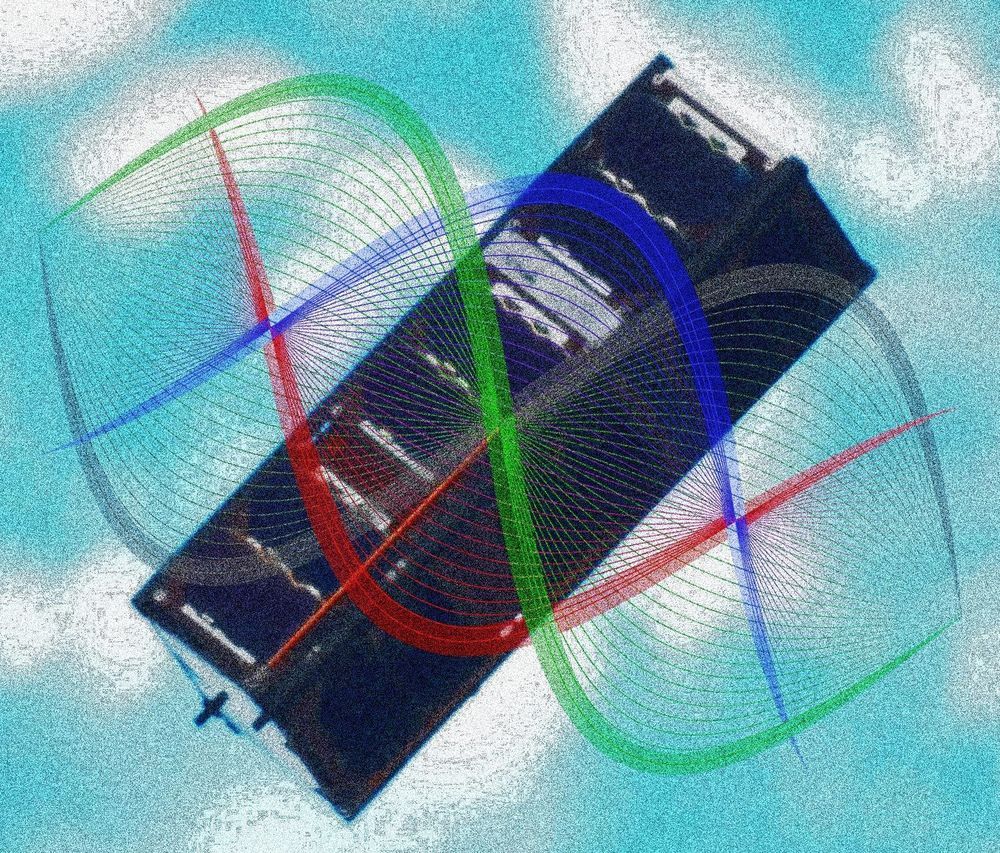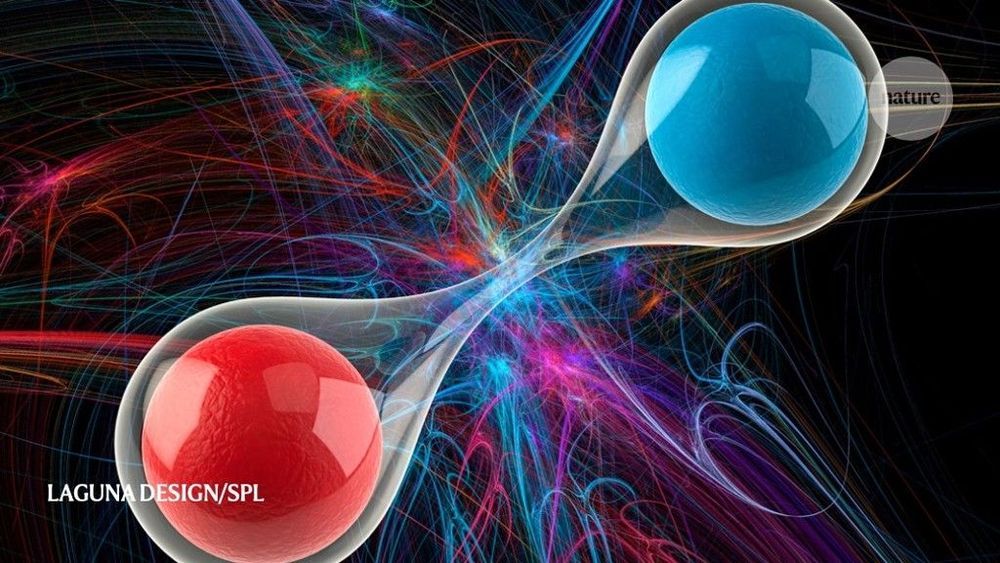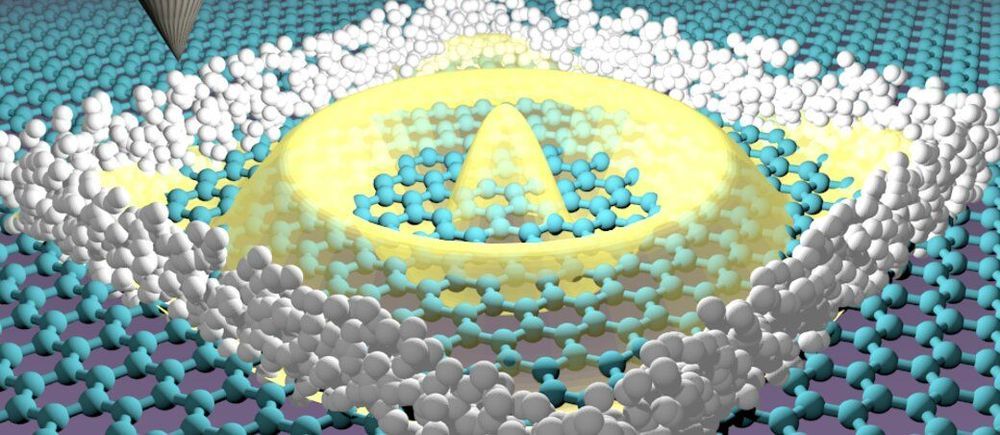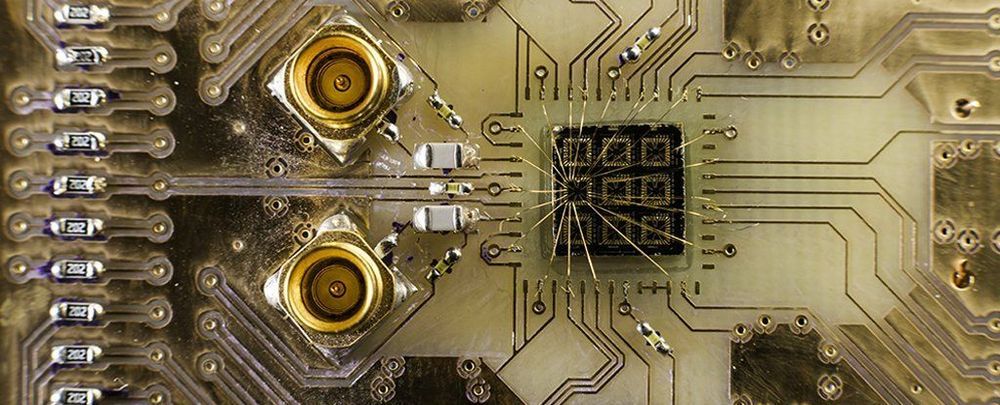Dr Alexis Kirke of the University of Plymouth has demonstrated the use of teleportation in music jamming.
Category: quantum physics – Page 818

Quantum Entanglement Demonstrated Aboard Orbiting CubeSat – Step Toward Space-Based Global Quantum Network
Advance poised to enable cost-effective space-based global quantum network for secure communications and more.
In a critical step toward creating a global quantum communications network, researchers have generated and detected quantum entanglement onboard a CubeSat nanosatellite weighing less than 2.6 kilograms and orbiting the Earth.
“In the future, our system could be part of a global quantum network transmitting quantum signals to receivers on Earth or on other spacecraft,” said lead author Aitor Villar from the Centre for Quantum Technologies at the National University of Singapore. “These signals could be used to implement any type of quantum communications application, from quantum key distribution for extremely secure data transmission to quantum teleportation, where information is transferred by replicating the state of a quantum system from a distance.”


Team develops method for trapping elusive electrons
Graphene’s unique 2-D structure means that electrons travel through it differently than in most other materials. One consequence of this unique transport is that applying a voltage doesn’t stop the electrons like it does in most other materials. This is a problem, because to make useful applications out of graphene and its unique electrons, such as quantum computers, it is necessary to be able to stop and control graphene electrons.
An interdisciplinary team of scientists from the Universidad Autonoma de Madrid (Spain), Université Grenoble Alpes (France), International Iberian Nanotechnology Laboratory (Portugal) and Aalto University has solved this long-standing problem. The team included experimental researchers Eva Cortés del Río, Pierre Mallet, Héctor González‐Herrero, José María Gómez‐Rodríguez, Jean‐Yves Veuillen and Iván Brihuega and theorists including Joaquín Fernández-Rossier and Jose Lado, assistant professor in the department of Applied Physics at Aalto.
The experimental team used atomic bricks to build walls capable of stopping the graphene electrons. This was achieved by creating atomic walls that confined the electrons, leading to structures whose spectrum was then compared with theoretical predictions, demonstrating that electrons were confined. In particular, it was obtained that the engineered structures gave rise to nearly perfect confinement of electrons, as demonstrated from the emergence of sharp quantum well resonances with a remarkably long lifetime.

Mathematical Breakthrough Makes It Easier to Explore Quantum Entanglement
Updated mathematical techniques that can distinguish between two types of ‘non-Gaussian curve’ could make it easier for researchers to study the nature of quantum entanglement.
Quantum entanglement is perhaps one of the most intriguing phenomena known to physics. It describes how the fates of multiple particles can become entwined, even when separated by vast distances. Importantly, the probability distributions needed to define the quantum states of these particles deviate from the bell-shaped, or ‘Gaussian’ curves which underly many natural processes. Non-Gaussian curves don’t apply to quantum systems alone, however. They can also be composed of mixtures of regular Gaussian curves, producing difficulties for physicists studying quantum entanglement. In new research published in EPJ D, Shao-Hua Xiang and colleagues at Huaihua University in China propose a solution to this problem. They suggest an updated set of equations that allows physicists to easily check whether or not a non-Gaussian state is genuinely quantum.
As physicists make more discoveries about the nature of quantum entanglement, they are rapidly making progress towards advanced applications in the fields of quantum communication and computation. The approach taken in this study could prove to speed up the pace of these advances. Xiang and colleagues acknowledge that while all previous efforts to distinguish between both types of non-Gaussian curve have had some success, their choices of Gaussian curves as a starting point have so far meant that no one approach has yet proven to be completely effective. Based on the argument that there can’t be any truly reliable Gaussian reference for any genuinely quantum non-Gaussian state, the researchers present a new theoretical framework.

Scientists Have Demonstrated Quantum Entanglement on a Tiny Satellite Orbiting Earth
In the strange field of quantum physics, quantum entanglement – what Einstein called “spooky action at a distance” – stands out as one of the most intriguing phenomena. And now scientists just managed to successfully demonstrate it again, this time onboard a CubeSat satellite orbiting Earth.
Quantum entanglement is where two particles become inextricably linked across a distance, so that one serves as an indicator of the other in a certain aspect. That unbreakable link might one day form the basis of a super-fast, super-secure quantum internet.
While a quantum internet is still some way off, if we want to make it work, it’s going to require something other than optical fibres.

Physicists Just Quantum Teleported Information Between Particles of Matter
By making use of the ‘spooky’ laws behind quantum entanglement, physicists think have found a way to make information leap between a pair of electrons separated by distance.
Teleporting fundamental states between photons – massless particles of light – is quickly becoming old news, a trick we are still learning to exploit in computing and encrypted communications technology.
But what the latest research has achieved is quantum teleportation between particles of matter – electrons –something that could help connect quantum computing with the more traditional electronic kind.
Quantum computers could arrive sooner if we build them with traditional silicon technology
Quantum computers have the potential to revolutionise the way we solve hard computing problems, from creating advanced artificial intelligence to simulating chemical reactions in order to create the next generation of materials or drugs. But actually building such machines is very difficult because they involve exotic components and have to be kept in highly controlled environments. And the ones we have so far can’t outperform traditional machines as yet.
But with a team of researchers from the UK and France, we have demonstrated that it may well be possible to build a quantum computer from conventional silicon-based electronic components. This could pave the way for large-scale manufacturing of quantum computers much sooner than might otherwise be possible.
The theoretical superior power of quantum computers derives from the laws of nanoscale or “quantum” physics. Unlike conventional computers, which store information in binary bits that can be either “0” or “1”, quantum computers use quantum bits (or qubits) that could be in a combination of “0” and “1” at the same time. This is because quantum physics allows particles to be in different states or places simultaneously.
Lasers Could Make Computers 1 Million Times Faster
Pulses of light from infrared lasers can speed up computer operations by a factor of 1 million, and may have opened the door to room-temperature quantum computing.
